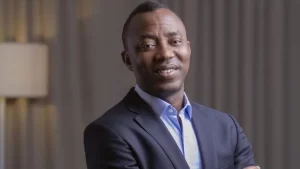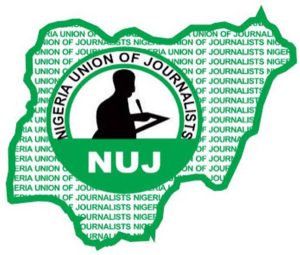
Barely three days after operations resumed, a train operated by the Nigerian Railway Corporation (NRC) on the Warri–Itakpe route derailed on Saturday evening, casting fresh doubts over the reliability and safety of Nigeria’s multibillion-dollar rail infrastructure.
According to the NRC, two of the seven coaches on the Warri–Itakpe Train Service went off the tracks near Agbor in Delta State at about 7:30 p.m. Fortunately, all passengers were safely evacuated and accounted for.
The NRC’s Managing Director, Dr Kayode Opeifa, confirmed the development in a statement on Sunday, attributing the incident to suspected track vandalism. He said recovery operations had been immediately launched, and services along the corridor were temporarily suspended for a full safety audit.
“The preliminary report indicates possible vandalism along the affected section,” Opeifa said. “We have deployed recovery teams and are working with security operatives to investigate and restore the line safely.”
This derailment marks Nigeria’s 189th rail incident in six years, reigniting public frustration over what many describe as systemic negligence in the management of critical transport infrastructure.
Between 2019 and 2025, records from the National Bureau of Statistics revealed 183 derailments between 2020 and 2022 alone, underscoring the growing challenge of rail maintenance and safety.
The Warri–Itakpe service, which resumed operations on 29 October after a long suspension, was forced to halt again just three days later. Previous accidents on the Abuja–Kaduna, Lagos–Ibadan, and Warri–Itakpe routes have raised similar alarms over the durability of tracks, signalling systems, and overall project quality.
Despite huge public expenditure — with the Lagos–Ibadan, Abuja–Kaduna, and Warri–Itakpe lines collectively costing over $7.3 billion — Nigeria’s rail system remains plagued by derailments, vandalism, and operational breakdowns.
Official data from the NRC shows that between 2022 and 2023, over 150,000 rail clips were stolen from various corridors, including about 50,000 each from the Lagos–Ibadan, Warri–Itakpe, and Abuja–Kaduna lines.
In 2022, the Federal Executive Council approved ₦718 million to secure the Abuja–Kaduna corridor through private security firms. Yet, vandalism persists across multiple routes, prompting questions about the effectiveness of such measures.
Transport analysts say the derailment crisis reflects a deeper structural problem. Former London Underground engineer, James Akpoviroro, criticised the lack of a comprehensive maintenance framework.
“Maintenance should be routine, not reactive,” he said. “Every major city should have a dedicated maintenance unit, well-trained and adequately funded. Without that, derailments will keep happening.”
Economist and President of the Nigerian Economic Society, Professor Adeola Adenikinju, also stressed the need for technology-driven surveillance, including drone monitoring and automated track inspection systems.
“Security personnel alone cannot cover the vast network,” he noted. “We must integrate technology if we truly intend to safeguard our rail investments.”
Since 2016, Nigeria’s rail modernisation programme — heavily funded through loans from the China Exim Bank and executed by China Civil Engineering Construction Corporation (CCECC) — has been a flagship infrastructure policy. But experts now warn that without sustainable maintenance and security strategies, the massive investment could become a liability.
Public policy analyst, Dr Ndu Nwokolo, urged the Federal Government to adopt a community-based protection approach.
“The NRC should engage local communities to safeguard these assets. It promotes ownership and employment while curbing vandalism,” he said.




![[PHOTOS] MOK Movement Disburses ₦450,000 to Empower Petty Traders In Offa](https://newsbulletin.com.ng/wp-content/uploads/2025/11/1762189781477-300x300.jpg)


